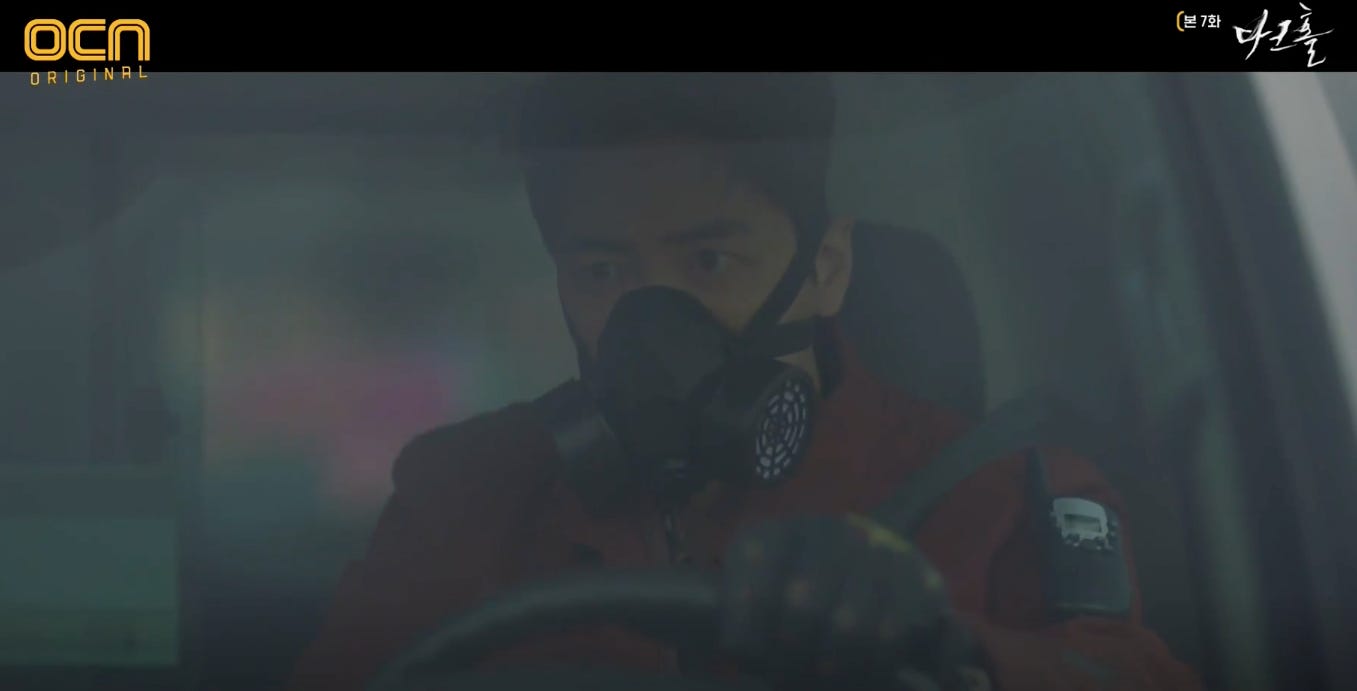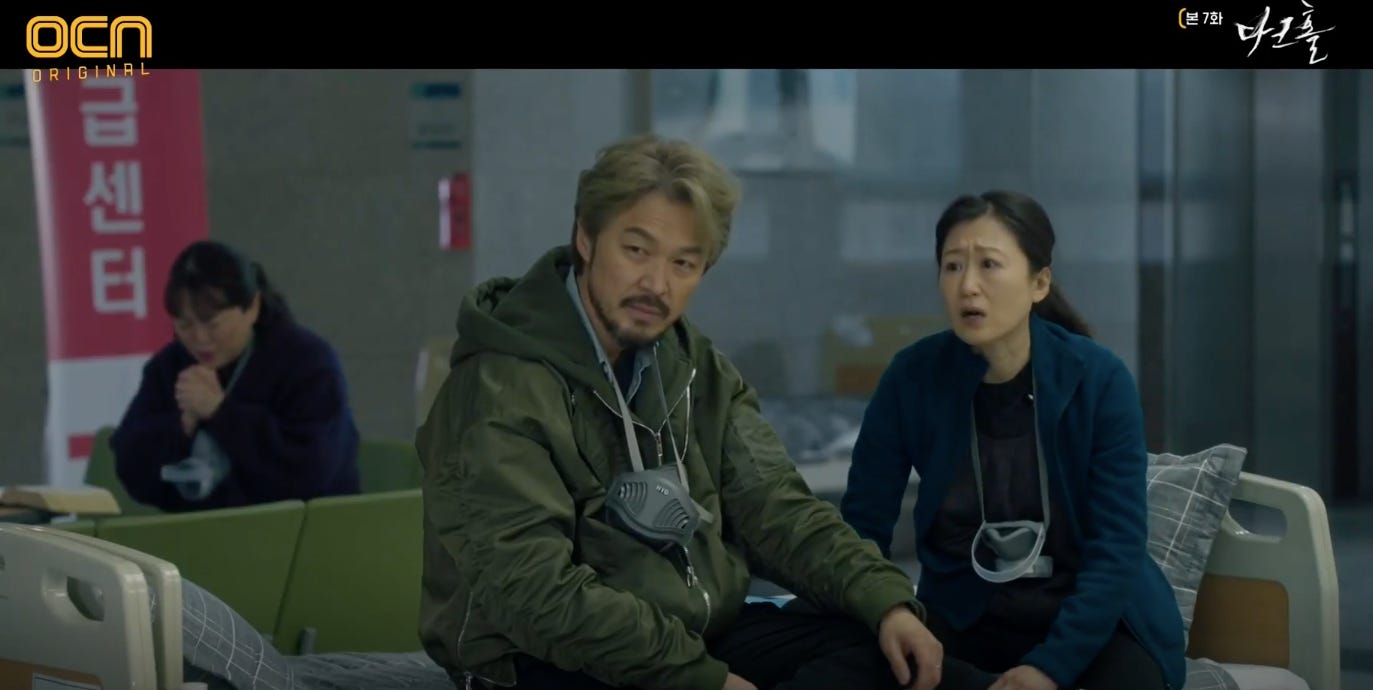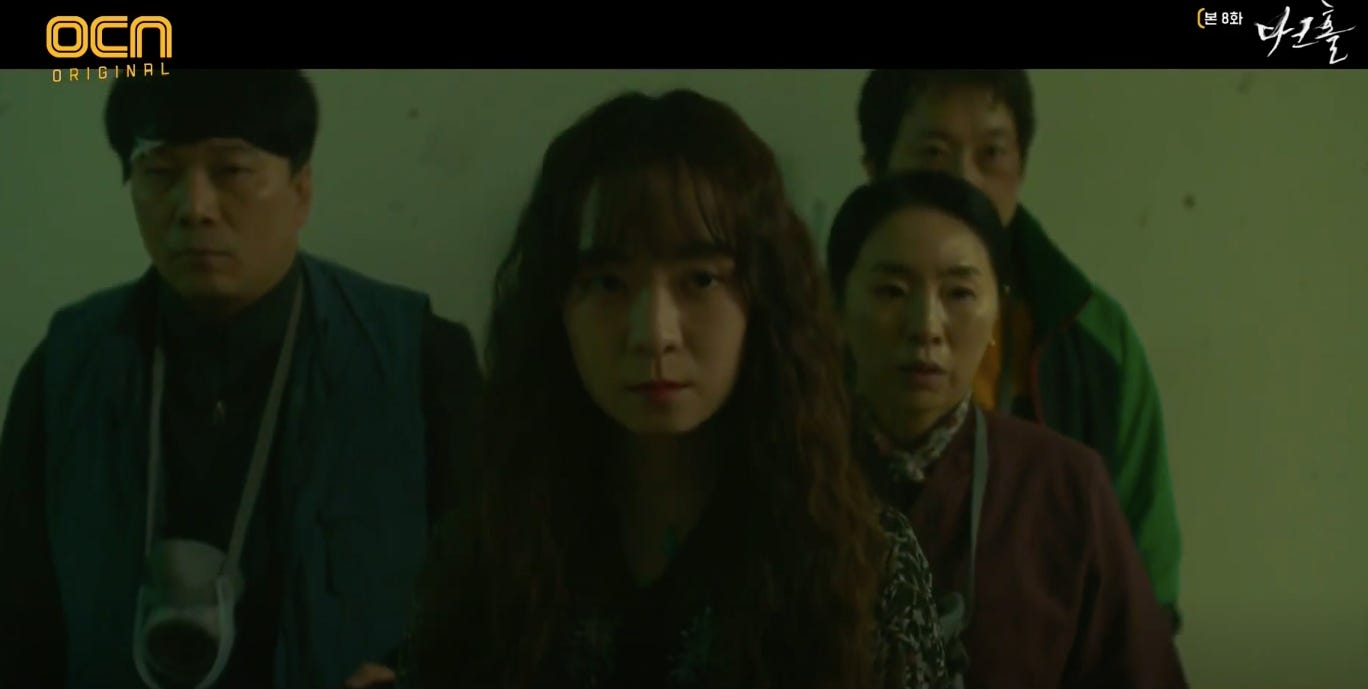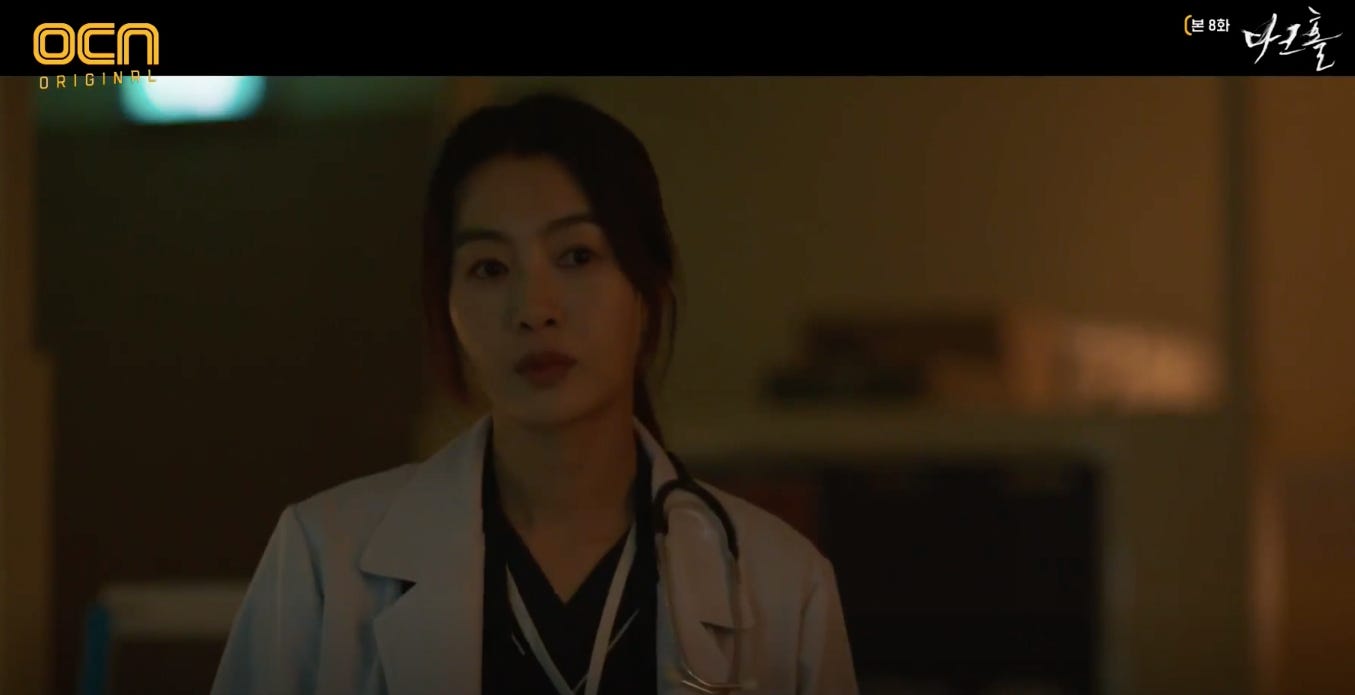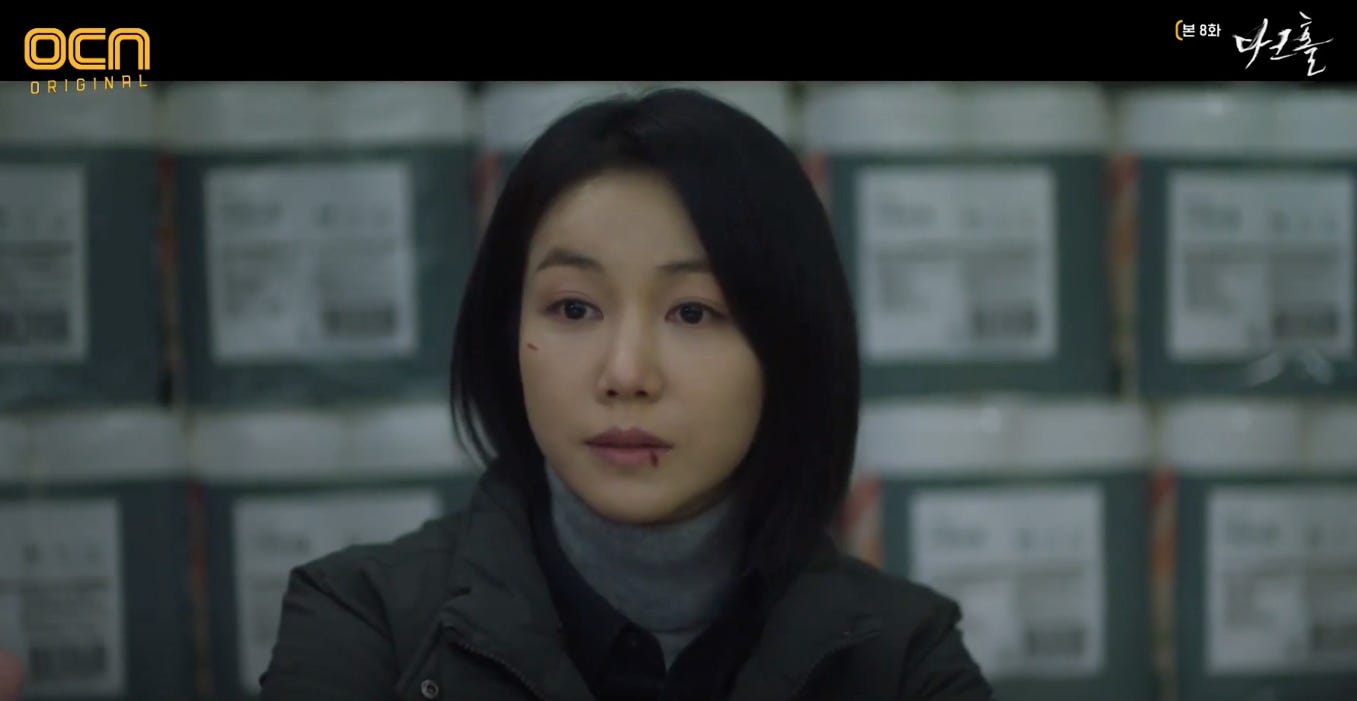Dark Hole (2021) The Evil Within
Spoilers for Episodes 7 and 8 ahead…
Since its publication in 1954, Lord of the Flies has become a classic work of fiction still standard reading text in many English-speaking classrooms. Its longevity speaks to the unerring relevance of the themes embedded in the storytelling. On the surface it looks like a story for the young ones but there’s no denying the depth of ideas embodied in this timeless allegory regarding our propensity for evil, and our inability since time immemorial to find answers, easy or otherwise, towards its eradication. Lord of the Flies brims with pessimism at those prospects. Evil is so deeply entrenched within the human condition going to the core of who we are. Even with the civilizing influence of community with all the institutional structures in place, evil can only be restrained rather than eliminated. Once the restraints taken away, all bets are off. Moreover, our history is littered with good intentions gone wrong. New revolutionary ideas to change the world for the better often don’t end that well for the people involved even with the best of motives. As all of history shows, it doesn’t take long for humans to descend into savagery — erstwhile allies turning against each other, normally sound, mild-tempered human beings turn into savages when personal survival is at stake.
Something similar seems to be going on in Dark Hole. The name in and of itself is instructive of where the narrative intends to go. A large, seemingly bottomless sinkhole likely created by an extraterrestrial being can safely be connected with the anarchy and destruction that’s beset the townsfolk. A black smoke emerges, moving with an unknown purpose while the inhabitants of Mujin are caught up in the haze. Soon the great majority of the population are nothing more than mindless killing monsters or more accurately, puppets. It’s clear that the monsterization/mutation on top of everything else is a distraction. Predictably, everyone fears for their life — some more so than others. Others very quickly descend into savagery because there are pre-existing propensities within them that facilitate the transformation. Being attacked by other mutants isn’t a prerequisite for mutation but fear and a flexible, adaptable moral compass are.
Nowhere is this better elucidated than in the disturbing but oddly fascinating development of the death cult led by shaman Kim Seon-nyeo. The shaman illustrates unequivocally the role of the fanatical believer who has embraced the new regime unquestioningly and abandoned all sense of proportion. Why? Because she has had a taste of real power. Prior to her encounter with the entity her shamanistic powers appeared to be waning and she was becoming an object of scorn. With the appearance of the dark hole, an opportunity to reclaim the respect she once had in the community has arisen. Tempted with real power, she succumbed with little hesitation. Now she can play god’s prophet with willing minions to do her bidding. She’s declared herself the new law in town as she dons the hat of new high priestess sacrificing on the altar of might is right.
What’s also noteworthy is the shaman setting up shop in the hospital — a place representing scientific progress, the fruits of civilization. A crowning achievement of the modern scientific revolution. She, however has set up her version of the Spanish Inquisition, with no inquiry but plenty accusation and condemnation. It’s a witch hunt in effect that has more in common with the dark ages than the Enlightenment. She fills a power vacuum that frightened survivors cling on to for direction and hope.
The most horrifying part of the show is not that people are turning into monsters, running amok and killing indiscriminately. It is when human beings who haven’t been touched by monsterization, take it upon themselves to mete out punishment unquestioningly in order to escape monsterization. How different are they from the zombified mutants? It’s a rhetorical question. Of course there’s real power on offer. There always is. But raw power doesn’t necessarily equates to good or right.
What’s even more devastating of course is that the hospital survivors are being so obviously exploited by the unworldly entity but their avarice and fear sees them falling prey to his machinations. It’s as if they’re Hansel and Gretel being lured into the witch’s cottage with promise of goodies when in actual fact death awaits them. The puppet master has seen the human heart and has very quickly learnt how to pull those strings adroitly.
So far it doesn’t seem like the writer has very many complimentary things to say about religious people. The Bible-reading hypocrite who saw a tragic end, wasn’t likeable but it didn’t automatically mean she deserved death. Although she seemed to be reading the scriptures, she understood very little of it. She was a syncretist who had a bet each way depending on which way the wind was blowing for her at any given time. Religion doesn’t save people. It doesn’t even make people good. But it’s an effective way of controlling unruly human beings and getting them to toe the line through groupthink
All that must sound odd coming from someone like me who is a person of faith. But it has been clear to me for decades now that real transformation doesn’t come from ritualistic observance and adherence or paying lip service to creeds. The show demonstrates this superbly. The practice of faith goes much deeper than human expediency to gain benefits seemingly offered by a belief system. Religiosity doesn’t necessarily equate to a belief in God or a belief in anything except personal gain. Genuine belief translates into actions that are consistent with the faith’s teachings. Unfortunately religion can become the tool of evil. It happens far too often for my comfort but there’s no denying it’s reality.
In fact the show is somewhat Biblical in its anthropology. Even the best of us as exemplified by Hwa-sun can be tempted to cross the line. It doesn’t take a lot. It doesn’t mean of course that humans are incapable of any good but evil lurks within often piggybacking on even the most well-meaning desires.
The extent to which evil is so pervasive can be seen recently in how Dr Han is now experimenting on ICU patients in order to find a cure for the black smoke. No doubt she was egged on by the psychopathic nurse but the choice to start was hers. Even though she means well and can possibly rationalize her way out of a catheter bag, the whole enterprise is fraught with moral and ethical issues. In the latter part of the book of Judges there’s a reminder of what happens when there’s a break down in authority. “In those days there was no king, everyone did what was right in their own eyes.” This is the consequence of anarchy. For a lack of supervision and accountability everyone takes matters into their hands without impunity.
This post isn’t meant to belittle or demean the difficult moral choices that people have to make in such trying circumstances. Not everyone has Hwa-sun or Han-tae’s skill sets to fob off mutants. Human beings are wired to survive — the fight and flight response is evidence of that. Some are more equipped to fight and others are more inclined to take flight. This is exactly one of the show’s strengths in being able to portray that with some realism. It’s an extreme situation that most are ill-prepared to deal with.
The puppet master is undoubtedly a Satan-like entity who understands humans too well. Right now he’s behind the scenes pushing their buttons, fear, survival instincts, greed and insecurity. It’s in his interest that humans flounder, running around like headless hens fighting each other. While they’re busy fighting each other, they can’t be thinking about who’s behind the chaos.



